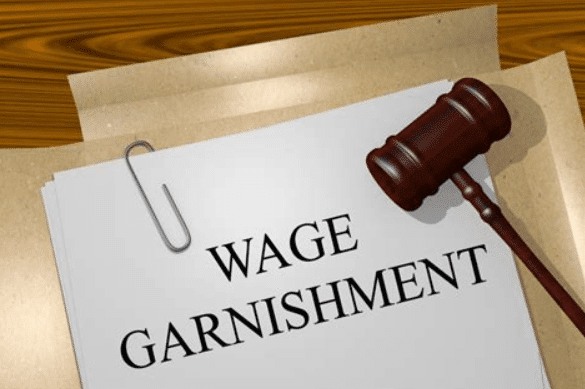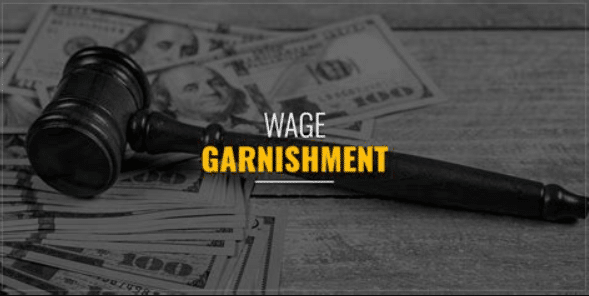Discovering that your wages are being garnished can be distressing, but it’s not necessarily too late to take action. While bankruptcy may seem like the only solution, there are steps you can take to potentially stop a garnishment even after it has commenced.
Instead of resigning to the idea of bankruptcy, consider exploring alternative strategies to prevent wage garnishment. By taking proactive measures, you may be able to protect your income and financial stability.
It’s essential to act swiftly and decisively upon learning of the garnishment to maximize your chances of success. Whether it’s challenging the judgment, negotiating with creditors, exploring state-specific protections, or seeking assistance from consumer credit counseling services, there are options available to you.
Don’t let the fear of wage garnishment lead you to believe that bankruptcy is your only recourse. By understanding your rights and exploring all available avenues, you can take control of your financial situation and work towards a positive outcome.
Protect your wages from debt collectors by filing a response with ZumaZip.com.
Respond to the demand letter
Receiving a demand letter from a creditor before wage garnishment begins is a crucial opportunity to take action and prevent further financial strain. Ignoring this letter is not advisable, as it signifies a pivotal moment where proactive steps can make a significant difference in your financial situation.
Many creditors prefer to pursue voluntary payments rather than initiating the garnishment process, which can be costly and time-consuming for both parties. Seizing this window of opportunity to negotiate and establish a payment plan can be your most effective strategy to halt the garnishment process before it escalates.
By engaging with your creditor and demonstrating a willingness to address your financial obligations, you may be able to reach a mutually beneficial arrangement that satisfies the debt without resorting to wage garnishment. This proactive approach not only mitigates the immediate impact on your income but also fosters a positive relationship with your creditor.
Remember, communication is key in navigating financial challenges. Don’t hesitate to reach out to your creditor upon receiving a demand letter to explore payment options and prevent wage garnishment. Taking action now can save you from unnecessary financial hardship and set you on the path to financial stability.
Look into the laws in your state
Certain states offer additional protections against wage garnishment, providing individuals with avenues to safeguard their income and financial stability.
In Ohio, individuals facing wage garnishment can request a court-appointed trustee to oversee the distribution of payments to creditors. This trustee serves as an intermediary, simplifying the process and shielding individuals from direct wage garnishment.
Similarly, residents of California have the option to file a claim of exemption to reduce or eliminate garnishment. This provision recognizes economic hardship and allows individuals to retain more of their income to support themselves and their families.
For those residing outside of Ohio and California, it’s essential to explore available options within your state. Contacting the clerk of the county court can provide valuable insights into the protections and procedures available to you.
By understanding and leveraging state-specific protections against wage garnishment, individuals can assert their rights and mitigate the financial impact of debt obligations. Whether through court-appointed trustees, claims of exemption, or other mechanisms, these safeguards offer crucial support to those facing wage garnishment.
Don’t let debt collectors intimidate you. Respond with ZumaZip.com.
Get help with debt counseling
Consumer credit counseling services (CCS) offer a valuable resource for individuals seeking to stop wage garnishment and regain control of their finances. Distinct from debt repair companies, CCS operates as non-profit agencies dedicated to assisting individuals in managing their debt effectively.
Engaging with a CCS can be instrumental in negotiating a feasible repayment plan with your creditors. Through structured agreements, you may be able to pay off your debt over a designated time period, alleviating financial strain and avoiding wage garnishment.
One of the significant benefits of enrolling in a CCS program is the protection it provides against further garnishment actions by creditors. While participating in a CCS program, creditors typically agree not to pursue wage garnishment, providing you with essential relief and breathing room to address your financial obligations.
By leveraging the services of a CCS, you can access expert guidance and support in navigating your debt repayment journey. From negotiating with creditors to establishing manageable payment plans, CCS empowers individuals to take proactive steps towards financial stability and debt relief.
If you’re facing the prospect of wage garnishment, consider reaching out to a reputable consumer credit counseling service to explore your options and find a path towards financial freedom. With the right support and resources, you can overcome debt challenges and build a brighter financial future.
Object to the garnishment
When faced with a demand letter for wage garnishment, ignoring it is not a viable strategy. If left unaddressed, the garnishment process will likely proceed, impacting your financial stability. Instead, it’s essential to take proactive steps to object to the garnishment through an official and legally binding notice.
Requesting a hearing with the court is a crucial part of the objection process. This provides an opportunity to present your case and challenge the garnishment on valid grounds. Depending on your specific circumstances, you can raise one of the following objections:
- Lack of Proper Service: If you did not receive proper notification of the debt or the garnishment proceedings, you can object on the grounds of improper service. This objection challenges the validity of the garnishment based on procedural errors in serving legal documents.
- Excessive Garnishment Amount: If the proposed amount to be garnished exceeds the limits set by federal or state law, you can object on the basis of excessive garnishment. This objection asserts your rights under applicable laws and seeks to ensure that the garnishment is conducted within legal limits.
- Financial Hardship: If the garnishment would cause undue financial hardship for you or your dependents, you can object on the grounds of financial hardship. This objection highlights the adverse impact of the garnishment on your ability to meet essential expenses and maintain a reasonable standard of living.
By formally objecting to the garnishment and requesting a hearing with the court, you assert your rights and challenge the validity of the proposed action. This proactive approach allows you to advocate for yourself and potentially mitigate or halt the garnishment process. Don’t delay – take action to protect your income and financial well-being.
The creditor is taking too much
Federal law provides clear guidelines regarding the maximum amount that creditors can garnish from your wages. In general, creditors are limited to garnishing up to 25% of your disposable earnings, or the amount by which your disposable earnings exceed 30 times the federal minimum wage, whichever is less.
However, specific circumstances, such as garnishment for child support, alimony, student loan debts, or IRS taxes, may warrant different rules. For instance, garnishment for child support or alimony can result in up to 50% or 60% of your disposable earnings being withheld. Similar rules may apply to student loan debts and IRS taxes.
It’s essential to be aware of both federal and state laws governing wage garnishment, as states may impose additional restrictions or have different thresholds. If you believe that the proposed garnishment exceeds what federal or state law allows, you have the right to object to it.
Understanding your rights under federal and state laws is crucial in protecting your income from excessive garnishment. By staying informed and advocating for your rights, you can ensure that any wage garnishment is conducted within legal limits.
Proper procedures are not being followed
If the creditor did not follow the garnishment procedure, then there are grounds to terminate the order. This is essentially a mistake on behalf of the creditor, and possibly even the court. One example of this would be if the creditor failed to give you timely notice of the garnishment.
You previously paid the judgment
If you already paid the judgment or even paid partially through a method other than cash, you need to object. It is essential to do this because you do not want the creditor to get more than what they legally deserve.
Always attend the objection hearing
After filing an objection you need to attend the hearing. You can attempt to negotiate at the hearing. Even if the court overrules your objection, it is important to go. Should the court deny your objection, this is your opportunity to possibly stop the garnishment and negotiate a payment plan.
Make the right defense the right way with ZumaZip.com.
Challenge the judgment
Challenging a judgment is a crucial step in halting the garnishment process and asserting your rights in a debt-related lawsuit. Despite having a judgment against you, you still have options to challenge its validity and potentially stop the garnishment.
One avenue for challenging a judgment is to contest the legal basis on which it was obtained. This could involve arguing that you were not properly served with the initial complaint and legal documents, thereby invalidating the judgment.
Timing is of the essence when challenging a judgment to stop garnishment. While you may not always have the opportunity to dispute the judgment during the garnishment hearing itself, you can pursue avenues to vacate the judgment separately. This may involve posting a bond and attending a subsequent hearing to present your case.
It’s important to act swiftly and decisively upon becoming aware of your options to challenge the judgment. There is typically a limited window of time within which you can take action, so promptness is key.
Challenging a judgment can be a complex and time-consuming process, but it may be your best course of action to stop wage garnishment and protect your financial interests. By understanding your rights and exploring all available avenues, you can work towards a favorable outcome and regain control of your finances.
Never stop negotiating
Negotiation can be a powerful tool in navigating financial challenges. Creditors and debt collectors often prefer to avoid prolonged legal processes and may be open to finding a mutually beneficial solution. Even if wage garnishment has already commenced, don’t lose hope – there’s still room for negotiation.
It’s essential to keep communication lines open and transparent with your creditors. Changes in your circumstances, such as a sudden windfall or an improved financial situation, can present opportunities to negotiate a resolution. Whether it’s offering a lump sum payment to satisfy the debt or proposing a settlement arrangement, exploring negotiation options can help halt the garnishment process.
While bankruptcy may seem like a quick fix, it’s crucial to consider the long-term implications. Bankruptcy can have lasting effects on your financial health and credit score, making it challenging to rebuild your financial standing. Therefore, it’s wise to exhaust negotiation avenues before considering bankruptcy as a last resort.
Remember, never underestimate the power of negotiation – it could be the key to resolving your financial difficulties and avoiding drastic measures like bankruptcy. Keep communicating, stay proactive, and explore all available options to find a solution that works for you.
What is ZumaZip?
ZumaZip is a convenient solution designed to streamline your response to a debt collection lawsuit. Here’s a breakdown of what you can expect when you use ZumaZip:
Firstly, you’ll access our user-friendly web application, which guides you through the process step by step. You’ll be prompted to answer a series of questions related to your specific situation. Once you’ve completed the questionnaire, you have the option to either print out the finalized forms and mail them to the appropriate courts yourself, or you can opt to utilize ZumaZip’s services to file them on your behalf. Additionally, if you choose this option, an attorney will review your document for added peace of mind.
If you’re seeking guidance on how to effectively respond to a debt collection lawsuit, ZumaZip can provide the assistance you need. Feel free to explore our FAQs for more information on what ZumaZip has to offer.
What if I haven’t been sued yet?
If you’ve only received a collections notice, but not a lawsuit, the best way to respond is with a Debt Validation Letter. When a debt collector contacts you in any way, whether it’s by phone or mail, you can respond by formally requesting a debt validation with a Debt Validation Letter . This letter notifies the collector that you dispute the debt and forces them to provide proof you owe the debt. They can’t call you or continue collecting until they provide validation of the debt. This flowchart shows how you can use a Debt Validation Letter to win.
Get started with a Debt Validation Letter here.
How to Answer a Summons for debt collection in all 50 states
Here’s a list of guides on how to respond to a debt collection lawsuit in each state:
- Alabama
- Alaska
- Arizona
- Arkansas
- California
- Colorado
- Connecticut
- Delaware
- Florida
- Georgia
- Hawaii
- Idaho
- Illinois
- Indiana
- Iowa
- Kansas
- Kentucky
- Louisiana
- Maine
- Maryland
- Massachusetts
- Michigan
- Minnesota
- Mississippi
- Missouri
- Montana
- Nebraska
- Nevada
- New Hampshire
- New Jersey
- New Mexico
- New York
- North Carolina
- North Dakota
- Ohio
- Oklahoma
- Oregon
- Pennsylvania
- Rhode Island
- South Carolina
- South Dakota
- Tennessee
- Texas
- Utah
- Vermont; Vermont (Small Claims court)
- Virginia
- Washington
- West Virginia
- Wisconsin
- Wyoming
Guides on how to beat every debt collector
Hey there! Facing off against a debt collector can feel like a daunting challenge, but fear not! We’re here to help you navigate through it all with our handy guides designed to assist you in beating every debt collector you encounter. Whether you’re facing a new lawsuit or dealing with a persistent collector, we’ve got your back. Stay positive, stay informed, and let’s tackle this together!
- Absolute Resolutions Investments LLC
- Accredited Collection Services
- Alliance One
- Amcol Clmbia
- American Recovery Service
- Asset Acceptance LLC
- Asset Recovery Solutions
- Associated Credit Services
- Autovest LLC
- Cach LLC
- Cavalry SPV I LLC
- Cerastes LLC
- Colinfobur
- Covington Credit
- Crown Asset Management
- CTC Debt Collector
- Cypress Financial Recoveries
- Delanor Kemper & Associates
- Eagle Loan of Ohio
- Educap
- Estate Information Services
- FIA Card Services
- Forster & Garbus
- Freshview Solutions
- Fulton Friedman & Gullace LLP
- Harvest Credit Management
- Howard Lee Schiff
- Hudson & Keyse LLC
- Integras Capital Recovery LLC
- Javitch Block
- Jefferson Capital Systems LLC
- LVNV Funding
- Mannbracken
- Mariner Finance
- Medicredit
- Michael J Adams PC
- Michael J Scott
- Midland Funding LLC
- Mullooly, Jeffrey, Rooney & Flynn
- Mountain Land Collections
- MRS Associates
- National Collegiate Trust
- Nationstar Foreclosure
- Northstar Capital Acquisition
- NCEP LLC
- NRC Collection Agency
- OneMain Financial
- Palisades Collection LLC
- Pallida LLC
- Paragon Revenue Group
- Pinnacle Collections Agency
- PMAB LLC
- Portfolio Recovery Associates
- Provest Law
- PYOD LLC
- Reunion Student Loan Finance Corporation
- Revenue Group
- Regents and Associates
- RSIEH
- Salander Enterprises LLC
- Second Round Sub LLC
- Security Credit Services
- Sherman Financial Group
- Suttell and Hammer
- T-Mobile
- Transworld Systems
- Tulsa Teachers Credit Union
- UCB Collection
- Velo Law Office
- Velocity Investments
- Waypoint Resource Group
- Weinberg and Associates
- Wolpoff & Abramson
Settle your medical debt
Having a health challenge is stressful, but dealing medical debt on top of it is overwhelming. Here are some resources on how to manage medical debt.
- Am I Responsible for My Spouse’s Medical Debt?
- Do I Need a Lawyer for Medical Bills?
- Do I Need a Lawyer to Fight Medical Bill Debt?
- Does Bankruptcy Clear Medical Debt?
- How Much Do Collection Agencies Pay for Medical Debt?
- How to Find Medical Debt Forgiveness Programs
- Is There a Statute of Limitations on Medical Bills?
- Medical Debt Statute of Limitations by State
- Summoned to Court for Medical Bills — What Do I Do?
- Summoned to Court for Medical Bills? What to Do Next
Stop calls from Debt Collectors
Do you keep getting calls from an unknown number, only to realize that it’s a debt collector on the other line? If you’ve been called by any of the following numbers, chances are you have collectors coming after you, and we’ll tell you how to stop them.
- 800-390-7584
- 800-289-8004
- 800-955-6600
- 877-366-0169
- 877-591-0747
- 800-278-2420
- 800-604-0064
- 800-846-6406
- 877-317-0948
- 888-899-4332
- 888-912-7925
- 202-367-9070
- 502-267-7522
Other wage garnishment resources
- Bank Account Garnishment and Liens in Texas
- Can I Stop Wage Garnishment?
- Can My Wife’s Bank Account Be Garnished for My Debt?
- Can Payday Loans Garnish Your Wages?
- Can pensions be garnished?
- Can Private Disability Payments Be Garnished?
- Can Social Security Disability Be Garnished?
- Can They Garnish Your Wages for Credit Card Debt?
- Can You Stop a Garnishment Once It Starts?
- Guide to Garnishment Limits by State
- How Can I Stop Wage Garnishments Immediately?
- How Long Before a Creditor Can Garnish Wages?
- How Long Does It Take to Get Garnished Wages Back?
- How to Fight a Wage Garnishment
- How to Prevent Wage Garnishment
- How to Stop a Garnishment
- How to Stop Social Security Wage Garnishment
- How to Stop Wage Garnishment — Everything You Need to Know
- New York Garnishment Laws – Overview
- Ohio Garnishment Laws — What They Say
- Wage Garnishment Lawyer
- What Is Wage Garnishment?



































